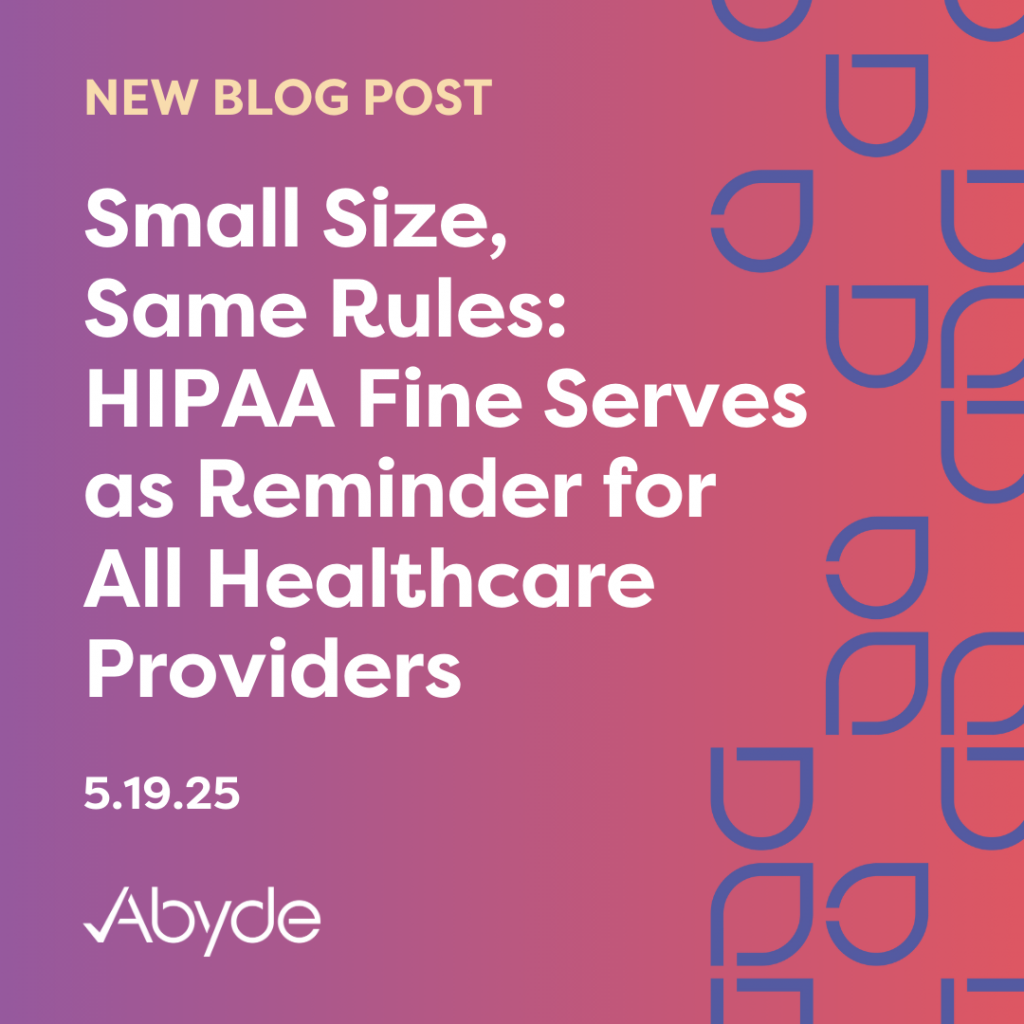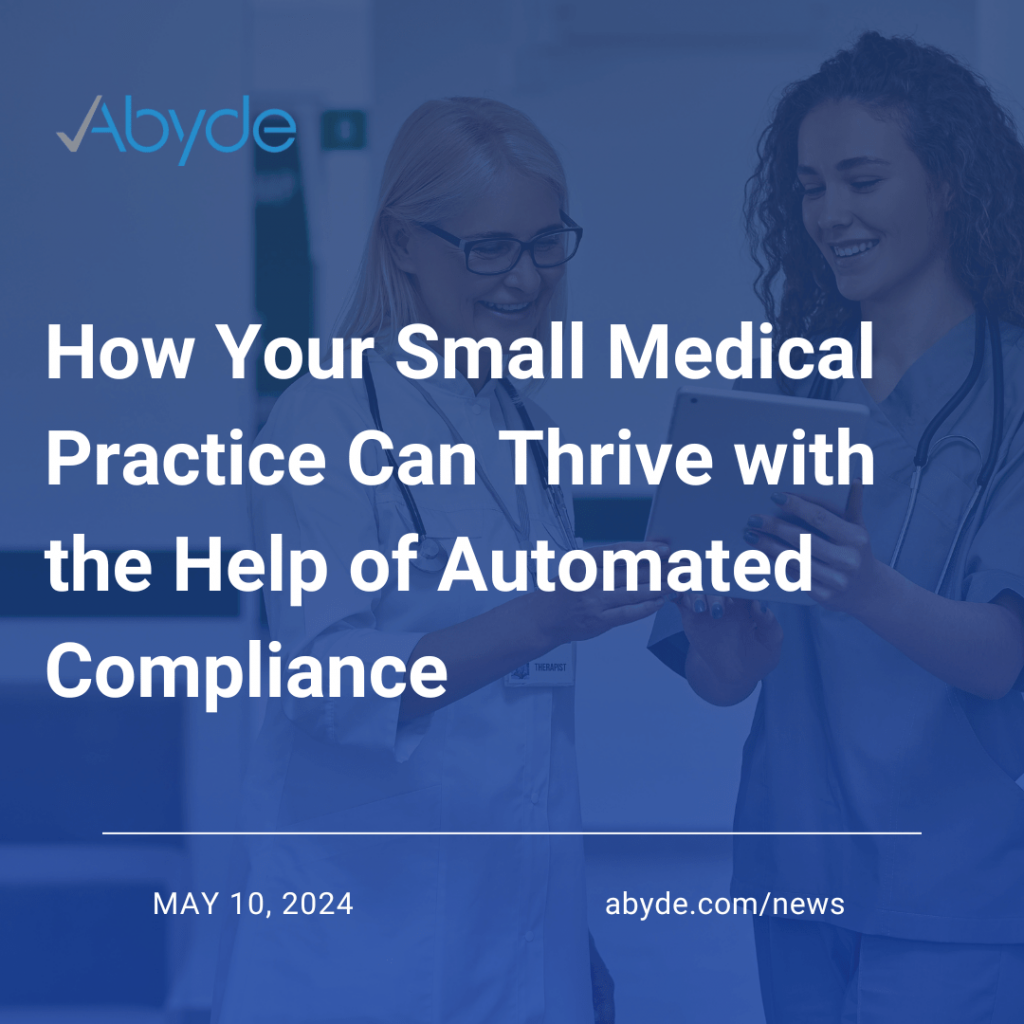May 19, 2025 HIPAA compliance is not just a recommendation; it’s a requirement, no matter how small your organization is. The latest HIPAA fine is a testament to this, with Vision Upright MRI the latest practice to be penalized. The small California MRI center experienced a significant breach, which exposed several violations in the fallout. Acting Office for Civil Rights (OCR) Director Anthony Archeval emphasized the widespread cybersecurity risks, noting that these threats impact healthcare providers of all sizes: “Cybersecurity threats affect large and small covered healthcare providers.” Vision Upright MRI was fined $5,000 and will now face a two-year Corrective Action Plan (CAP), being monitored by the OCR. This fine showcases that no practice, big or small, must be followed to keep patient data safe. What Happened? At the end of 2020, Vision Upright MRI experienced a breach in its systems due to an insecure server. This cybercrime exposed over 21,000 patients’ medical images, leading to the OCR’s investigation. The investigation discovered that the MRI center had never completed a Security Risk Analysis (SRA). The SRA thoroughly examines a practice, reviewing all current safeguards to secure Protected Health Information (PHI). These safeguards can include physical barriers the practice has implemented, like locked doors and alarms, and the administrative techniques the practice follows, like routinely checking access to sensitive patient data. The SRA is critical for a compliant practice and should be completed annually and after any breaches. While the SRA is a fundamental requirement for a practice, it is unfortunately often overlooked. The OCR has implemented a Risk Analysis Initiative to ensure practices are completing this requirement, and has reinstated the audit program, reviewing if regulated entities are maintaining this document. In addition to missing the SRA, Vision Upright MRI did not properly notify affected parties within 60 days, violating the Breach Notification Rule. The Breach Notification Rule requires practices to notify patients within 60 days of discovering a breach, regardless of how many were impacted. This short timeline allows patients to take the necessary precautions for the safety of their data. The practice should also provide credit monitoring. Since this event impacted well over 500 patients, the threshold to consider the situation a large breach, Vision Upright MRI also needed to notify the media and the OCR within a 60-day timeline. Communicating this is imperative, allowing the OCR to swiftly begin its investigation and potentially affected patients to receive information through media channels. These serious missteps led to the monetary settlement and years of government monitoring. Streamlining HIPAA Compliance Even a small practice doesn’t require overwhelming resources to be HIPAA compliant. The right compliance program can simplify HIPAA compliance. With smart solutions, the SRA can be completed easily, reviewing questions and potential vulnerabilities the practice faces. Additionally, breaches can be reported in intelligent software, with compliance experts assisting practices through alerting patients and the OCR. Meet with an expert today to learn how to automate your compliance program.
How Your Small Medical Practice Can Thrive with the Help of Automated Compliance
May 10, 2024 We’re celebrating National Small Business Day by highlighting some of the hardest-working individuals in the industry who serve patients day in and day out. Small medical practices account for a significant portion of the healthcare system, with over half of physicians working in practices with ten or fewer doctors. Additionally, many physicians own their practices, with 44% being self-employed. Running your small medical practice comes with great benefits but unique challenges. Read more as we discuss the common hurdles and how intelligent software-based compliance solutions work for your small practice. Small Practice Challenges: Cost Small medical practices operate with fewer resources. Cash flow and high costs are common dilemmas for small medical practices compared to hospitals. With fewer resources, small practices can be more vulnerable when challenges arise. For instance, as seen with the Change Healthcare breach, over 78% of surveyed small medical practices cited facing difficulties, with 31% unable to run payroll. While navigating high operating costs, the annual average ranges from $600,000 to $800,000, finding affordable yet effective resources is imperative. Small Practice Challenges: Administrative Burdens Administrative work can significantly impact the success of a practice. Time is valuable, especially when the office staff is a few people wearing many hats. Without the right tools, administrative tasks take a significant portion of a healthcare employee’s day. For instance, the average doctor spends almost 10 hours weekly completing clerical tasks, or roughly one-fifth of working hours. Maintaining complex and time-consuming HIPAA and OSHA compliance are examples of such tasks. Having comprehensive compliance programs is vital to being compliant. Without an automated solution, some administrative tasks include writing thorough policies and procedures, manually tracking staff training, and maintaining organized compliance documentation. Small Practice Challenges: Burnout Burnout is a common experience in healthcare. More than 90% of doctors have felt the impact of burnout. Juggling a demanding healthcare role with the responsibilities of running the practice itself can take a significant toll if not managed correctly. Administrative tasks contribute to this stress, with 64% of doctors noting clerical requirements as a significant stressor. HIPAA and OSHA compliance can be overwhelming, and the consequences can be severe. When fines can cost your small practice millions of dollars, finding a solution to alleviate compliance stress is essential. How Abyde Can Help Running a small medical practice can be difficult, but it is a testament to your dedication to your patients. Abyde understands that you want to spend more time with your patients, and automating HIPAA and OSHA compliance is a path to that goal. Our automated,cloud-based compliance software is for healthcare professionals like you seeking a secure and simplified approach to managing compliance. With Abyde’s easy-to-use solutions, your practice can save time and money, mitigate risk, and ensure you are always up to speed with the latest compliance requirements. To learn more about Abyde’s solutions, email info@abyde.com or schedule an educational consultation with one of our experts here.

